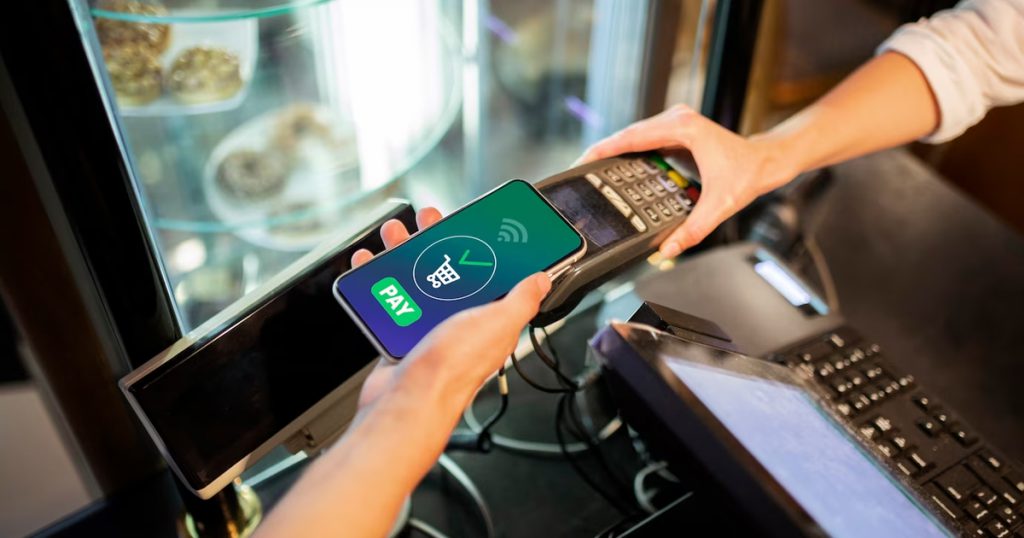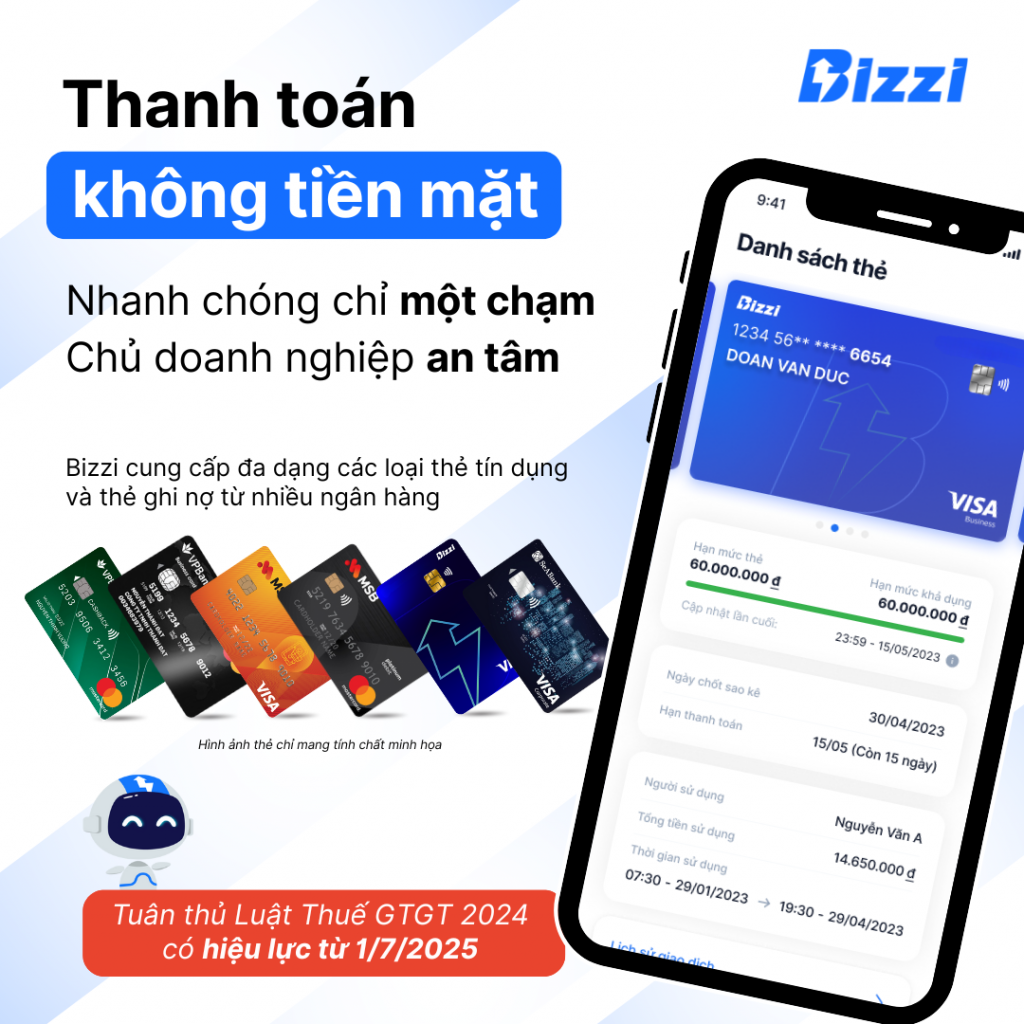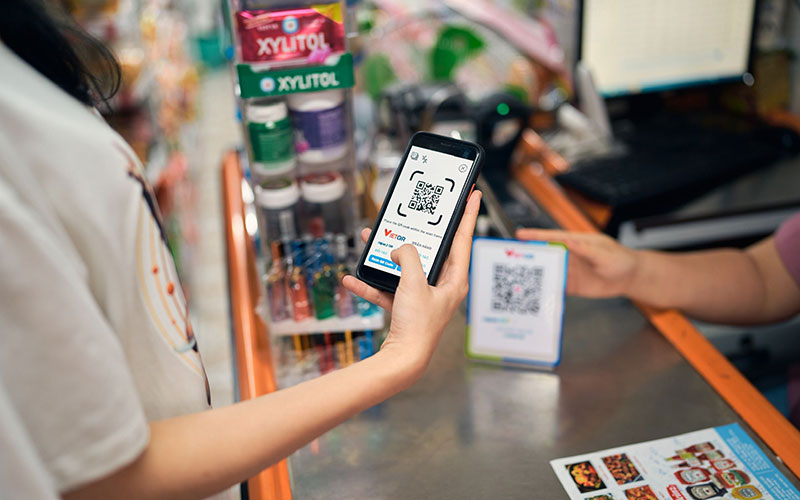In the context of the Vietnamese tax legal system being constantly improved and updated, the Law on Value Added Tax (VAT) 2024, expected to take effect from July 1, 2025, brings many important changes in the management and deduction of input VAT. Notably, the Ministry of Finance has proposed a landmark adjustment on the conditions for input VAT deduction for purchased goods and services.
Accordingly, Invoices over 5 million must be transferred new tax deductions – a regulation that will directly affect how businesses pay.
This change promises to have a profound impact on the way businesses pay and manage invoices. This article will delve into the new regulation, clarify the applicable cases, valid payment methods, and important notes so that businesses can best prepare for the upcoming change.
New regulation on goods from 5 million VND must be transferred to be deductible tax
According to the draft Decree guiding the implementation of a number of articles of the Law on Value Added Tax, an important change is the lowering of the threshold value of purchased goods and services (including imports) from 20 million to 5 million VND. That is, Invoices over 5 million must be transferred Only non-cash payment methods are eligible for tax deduction.
Special, Goods from 5 million VND must be transferred to be tax deductible This applies not only to individual invoices, but also to the total transactions of the day with the same seller. If there are multiple purchases in a day, but the total value is 5 million VND or more, the business must still make a transfer to receive tax deduction.
Therefore, businesses need to change their mindset in managing invoices and payment methods to avoid losing the right to deduct input VAT.
Do I need a contract for an invoice over 5 million?
According to the new regulations, in some special cases such as buying goods on credit or installments, Invoice over 5 million must have a contract Only in writing will the declaration and tax deduction be accepted. The contract must be accompanied by a VAT invoice and bank payment documents (if payment is due).
Even if the payment date has not yet come, but if there is a valid contract, the business can still make a temporary declaration. Thus, Invoice over 5 million must have a contract will be required in deferred payment transactions to ensure tax benefits of the enterprise.

What is a non-cash payment voucher?
To meet the requirements Goods from 5 million VND must be transferred to be tax deductible , businesses need to understand what is non-cash payment voucher valid. Although current law does not have a specific and unified definition of this type of document, based on relevant regulations, it can be understood that non-cash payment documents are papers and documents proving that payment for goods and services is made through payment channels without using direct cash.
Popular and accepted forms of non-cash payment include:
- Check: A written payment order issued by the drawer, requesting the bank to deduct a certain amount of money from his account to pay the beneficiary.
- Payment authorization or payment order, collection authorization, collection request: Forms of transaction in which the buyer (in case of payment authorization/payment order) or the seller (in case of collection authorization/collection) authorizes the bank to transfer money or collect money from the account.
- Bank cards, credit cards: Electronic payment methods allow buyers to pay for goods and services through the use of cards issued by banks.
- E-wallet (phone sim): Online payment applications or services allow users to store money and make payment transactions through electronic devices.
- Other forms of payment as prescribed by law: Including new electronic payment methods that will be legally recognized in the future.
Note about payment account: A valid payment document must demonstrate the transfer of money from the buyer’s account to the seller’s account. However, the draft also expands the scope of acceptance by allowing payment documents from the buyer’s account to the seller’s account in the name of the private enterprise owner, and vice versa. This creates more favorable conditions for private enterprises in the payment process.
Special cases where non-cash payment documents are not applicable
Although the regulations Invoices over 5 million must be transferred In addition to being tightened, the draft Decree and the Law on VAT 2024 also foresee and stipulate a number of special cases in which businesses are still allowed to deduct input VAT even without non-cash payment documents. These cases include:
- Clearing: In case the value of purchased goods and services is offset against the value of sold goods and services or goods are borrowed according to the agreement in the contract. The condition is that there must be a record of data comparison and confirmation between the two parties. If offsetting debt through a third party, there must be a record of debt offsetting from all three parties.
- Debt offset (borrowing, borrowing money, offsetting through a third party): If this offset method is stipulated in a previously written loan contract and there is a document showing the transfer of money from the lender's account to the borrower's account. The case of offsetting the purchase price with the amount of money the seller supports or asks the buyer to pay on his behalf also falls under this case.
- Third party bank payment authorization: Including cases where the seller requires the buyer to pay money through a bank to a third party designated by the seller. The condition is that this payment must be clearly stated in a written contract, and the third party must be a legal entity or an individual operating legally.
- Payment via bank to a third party account opened at the State Treasury to enforce the decision of a competent state agency.
- Installment purchase with value from 5 million VND or more: Business establishments are still allowed to declare and deduct input VAT if they have a written purchase contract, VAT invoice and bank payment documents (if payment has been made). In case there is no bank payment document because the payment date according to the contract has not yet come, they are still allowed to declare and deduct temporarily.
- Imported goods and services each time have a value of less than 5 million VND.
- Goods and services purchased each time according to invoice with value under 5 million VND (including VAT). This is an important point, showing that small transactions under the threshold of 5 million VND can still be paid in cash without affecting tax deduction.
- Imported goods are gifts from organizations and individuals abroad.
- In case of goods and services purchased by payment for goods and services by stocks or bonds, this payment method is specifically stipulated in the contract.
- In case the purchased goods and services are authorized to be paid by an individual who is an employee of the business establishment, the business establishment will then pay that individual, if the goods and services are used for the production and business activities of the establishment.
However, apart from the above cases, all transactions of 5 million or more must have a non-cash payment document. That means Goods from 5 million VND must be transferred to be tax deductible almost become a new common standard.

Timing of application and legal context
To get a clear picture of when the new regulation will apply, it is necessary to consider the current and future legal context:
- From 01/01/2025 to 30/06/2025: The provisions of the 2008 VAT Law (amended) still apply, accordingly, goods and services purchased each time have a value under twenty million dong Non-cash payment documentation is not required to qualify for a tax deduction.
- From 01/07/2025: The 2024 Law on VAT officially comes into effect. Clause 2, Article 14, Point b of this Law generally stipulates the requirement to have non-cash payment documents to deduct input VAT, except for special cases prescribed by the Government.
- Draft Decree guiding the 2024 VAT Law: Suggested threshold value 5 million VND as a basis for requiring non-cash payment documents to be deducted from taxes, and at the same time detailing special cases where this provision does not apply.
One scenario to keep in mind: If the proposed threshold of VND 5 million in the draft Decree is not approved, the official regulation in the 2024 VAT Law (from July 1, 2025) may be stricter, that is no limit on value of goods All tax deductible transactions must have non-cash payment documents (applicable to all transactions not falling under special circumstances). This further demonstrates the need to prepare and change business payment habits right now.
From 01/07/2025, Invoices over 5 million must be transferred will be one of the mandatory conditions for businesses to deduct input VAT. At the same time, Goods from 5 million VND must be transferred to be tax deductible will force businesses to change the way they do business, especially in payments and contracting. And in many cases, Invoice over 5 million must have a contract also become a mandatory legal requirement.
Businesses should proactively adapt to avoid tax risks in the near future.
>> See more: Regulations on invoices under 20 million paid in cash and how to handle them 2025
Frequently asked questions
To help businesses better understand the new regulations, here are some frequently asked questions:
When will the new regulations on cashless payments apply?
Expected from July 1, 2025, when the VAT Law 2024 takes effect.
What non-cash payment methods are accepted?
Including checks, payment orders, collection orders, bank cards, credit cards, e-wallets and other forms as prescribed by law.
In case of multiple purchases in a day, each purchase is less than 5 million VND but the total is over 5 million VND, do I need to transfer money?
Yes. If the total value of purchases by the same taxpayer in one day is VND 5 million or more, these invoices must have non-cash payment documents to be tax deductible.
Are there any cases where non-cash payment documents are exempted?
There are many special cases such as clearing, debt offset, authorized payment through a third party (with contract), deferred payment/installment payment (not yet due), imported goods/purchases under 5 million VND/time, imported gifts, payment by stocks/bonds (with contract), authorization for employees to make payment (with payment vouchers).
How does Bizzi help businesses comply with new regulations?
In the context of increasingly strict regulations on invoices and cashless payments, choosing a comprehensive cost and invoice management solution like Bizzi becomes extremely important. Bizzi not only provides effective electronic invoice management and accounting software but also brings Bizzi corporate card, including credit card and Debit card, tightly integrated with Bizzi Expense business expense management application. This helps businesses comply with new regulations easily and accurately through the following outstanding features:
- Convenient cashless payment: Bizzi corporate card allows to make all payment transactions for goods and services with a value of 5 million VND or more quickly and easily, ensuring a valid non-cash payment document.
- Automatic transaction recording: All spending transactions using Bizzi cards are automatically recorded and synchronized into the Bizzi Expense application, helping to save time and minimize errors in manual data entry.
- Centralized cost management: The Bizzi Expense app allows you to manage and track all your business expenses, including card payments and other methods.
- Electronic document storage: Receipts related to card transactions can be uploaded and stored directly in the app, making management and reconciliation convenient.
- Detailed report: Bizzi provides detailed reports on business spending by time and category, helping businesses easily control and comply with payment threshold regulations.
- Limit management and approvals: Businesses can set spending limits for each card and establish expense approval processes, enhancing internal controls.
- Accounting Integration: Expense and invoice data from Bizzi Expense can be easily integrated with accounting software, making accounting and tax filing quick and accurate.

With the Bizzi corporate card and Bizzi Expense app, businesses can not only meet the requirements for cashless payment documents but also optimize cost management processes, improve operational efficiency and ensure comprehensive legal compliance. Discover the outstanding benefits that Bizzi brings to your business!
Monitor Bizzi To quickly receive the latest information:
- Facebook: https://www.facebook.com/bizzivietnam
- Linkedin: https://www.linkedin.com/company/bizzi-vietnam/
- Youtube: https://www.youtube.com/@bizzivietnam


